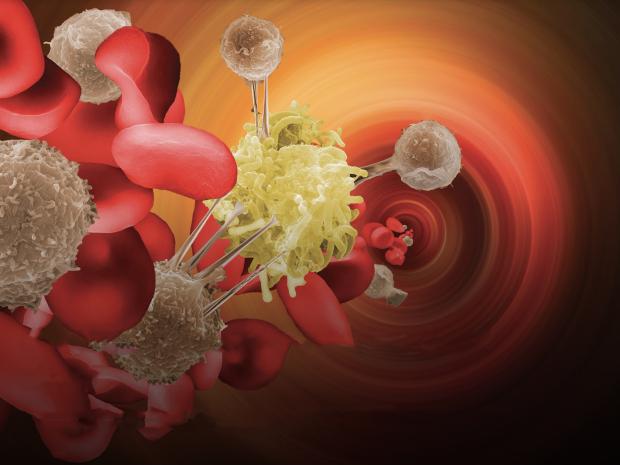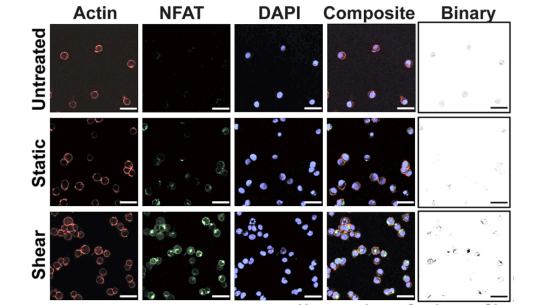Mechanobiology of metastatic cancer: Therapeutic strategies and high-throughput models

Speaker:
Michael R. King, Ph.D.
Lawrence Wilson Professor and Chair
Department of Biomedical Engineering, Vanderbilt University
Abstract:
Many types of cancer metastasize via the bloodstream, where circulating tumor cells (CTCs) originating from the primary tumor can travel through the circulation or lymphatic system and engraft in distant organs. Dr. King’s laboratory found that cancer cells exposed to physiological levels of fluid shear stress (FSS) are dramatically more susceptible to undergoing apoptosis via TRAIL protein. This inspired a new therapeutic drug delivery approach to target metastatic cells in the circulation. The FSS response of CTCs and their neutralization by lipid nanoparticle conjugation to the surface of circulating immune cells has been demonstrated with in vitro cell line experiments, orthotopic mouse models of metastasis, and analysis of primary CTC aggregates isolated from metastatic cancer patients. Recently his team discovered that this shear stress is primarily mediated by Piezo1 activation, and is modulated by interacting with aggregated stromal cells such as cancer-associated fibroblasts. Furthermore, FSS activation of Piezo1 dramatically enhances the activation of T cells and dendritic cells, which may have important implications for various immunotherapy applications.
Before joining Vanderbilt, Dr. King he was the Sarkaria Professor at Cornell University, and before that started his faculty career at the University of Rochester. He completed a PhD in chemical engineering at the University of Notre Dame and postdoctoral training in bioengineering at the University of Pennsylvania. He has received several awards including an NSF CAREER Award, the Outstanding Research Awards from the American Society of Mechanical Engineers, and the American Society of Clinical Chemistry. King is a Fellow of the American Institute of Medical and Biological Engineering (AIMBE), Biomedical Engineering Society (BMES), American Association for the Advancement of Science (AAAS), and the National Academy of Inventors (NAI). He served as founding Vice President of the International Society of Bionic Engineering, and, since 2013, he has been the Editor-in-Chief of the journal on Cellular and Molecular Bioengineering. Hed has served as Chair of the BME Council of Chairs, and is currently the Chair-Elect of the AIMBE College of Fellows.


